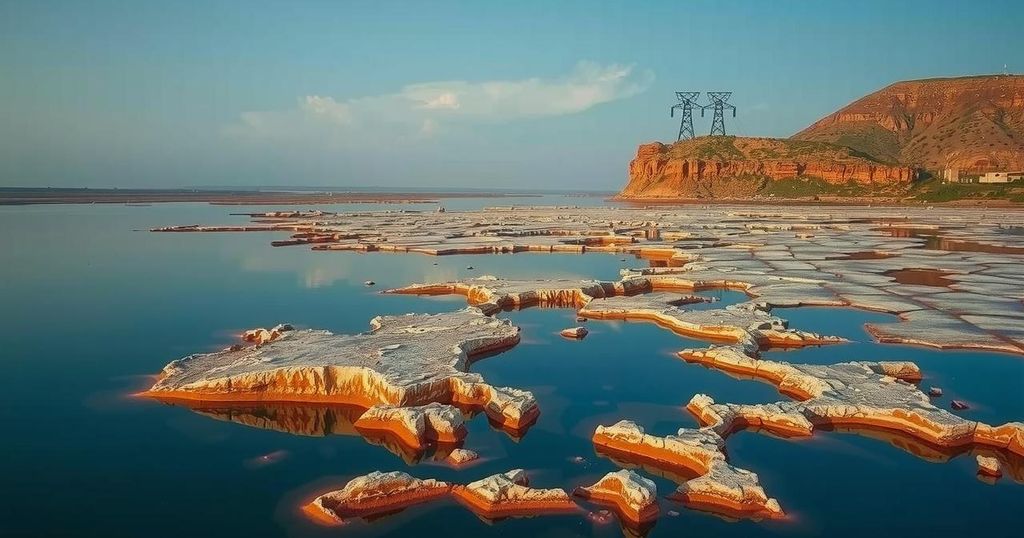Severe Drought Threatens Energy Supply from Lake Kariba in Zambia and Zimbabwe
A severe drought has drastically reduced water levels at Lake Kariba, threatening electricity generation in Zambia and Zimbabwe, which are facing extended daily power cuts. The situation has prompted both countries to seek alternative energy sources as they await potential rainfall to mitigate the crisis.
Lake Kariba, the world’s largest artificial lake, is currently facing severe depletion due to an intense drought exacerbated by the El Niño phenomenon. This alarming reduction in water levels threatens the operational capacity of the Kariba Dam, which is crucial for electricity generation in both Zambia and Zimbabwe. Consequently, these nations are experiencing substantial power shortages, with Zambia enduring outages of up to 21 hours daily and Zimbabwe facing 17-hour delays, significantly disrupting daily life and economic activities in both countries. The reduced water level has forced the dam’s power stations to limit their output, resulting in only one operational turbine out of the six available on Zambia’s side of the lake. This situation underscores an urgent need for diversifying energy sources as both nations pivot towards the development of alternative coal and solar power plants. Although the forthcoming rainy season in Zambia is expected to be normal, officials are hopeful for early precipitation to help mitigate the ongoing crisis, which has necessitated adjustments in economic growth forecasts for both countries.
The drought affecting Lake Kariba has raised significant concerns regarding energy security in Zambia and Zimbabwe. The El Niño climate pattern is known to induce irregular weather patterns, leading to prolonged dry spells that can dramatically impact water bodies. Lake Kariba not only represents a crucial water resource but also serves as a vital source of hydroelectric power, underlining the interdependence of climate conditions and energy supply in the region. As nations grapple with climate change effects, establishing sustainable and diverse energy solutions has become imperative.
In conclusion, the severe drought impacting Lake Kariba poses a critical threat to the electricity supply in Zambia and Zimbabwe, with significant repercussions for their economies and daily life. The urgent need for energy diversification is clear as both countries implement plans for alternative energy sources. While there is hope for improved rainfall to alleviate the current crisis, the situation remains a stark reminder of the challenges associated with climate variability and energy dependency.
Original Source: www.africa.com




Post Comment